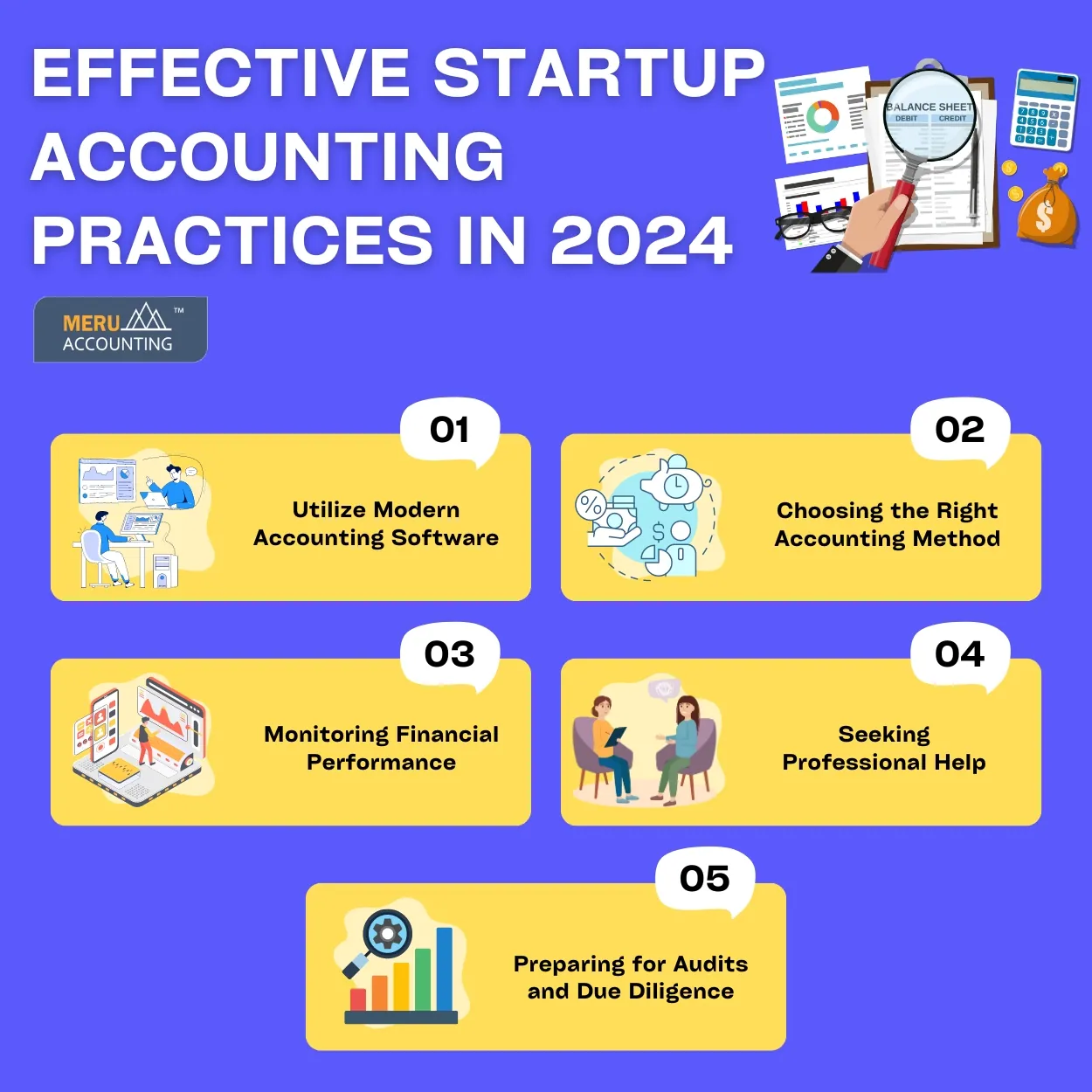
Jun 18, 2024 Author: Accounts Junction
Startups face unique challenges, especially when it comes to managing finances effectively. Proper startup accounting is crucial right from the inception to ensure sustainable growth and compliance.
In the first stages of a startup, it’s crucial to establish a solid accounting foundation. Accounting for startups involves more than just keeping track of income and expenses; it’s about setting up systems that will scale your business, managing cash flow effectively, and making informed financial decisions.
The Importance of Startup Accounting
- Financial Health Monitoring: Regular accounting helps you monitor the financial health of your startup, giving you insights into cash flow, profitability, and financial forecasts.
- Investor Readiness: Accurate and up-to-date books can make your startup more attractive to investors and lenders.
- Compliance and Reporting: Proper accounting ensures that you comply with tax laws and financial reporting standards, which is crucial for startups in 2024.
Key Components of Startup Accounting
- Bookkeeping: Accurate recording of all financial transactions is foundational. It encompasses receipts, invoices, payroll data, etc.
- Financial Statements: Regular preparation of balance sheets, income statements, and cash flow statements helps in assessing performance and planning for growth.
- Tax Compliance: Remaining compliant with tax regulations and filing returns timely is essential to avoid penalties and maintain a good reputation with authorities.
- Budgeting and Forecasting: Planning future expenditures and revenue projections ensure financial stability and sustainability.
Implementing Effective Startup Accounting Practices
- Utilize Modern Accounting Software: Use technology to streamline your accounting processes. Many accounting software options are designed specifically with startups in mind.
- Monitoring Financial Performance: Regularly reviewing financial statements and key performance indicators (KPIs) allows you to assess your startup's health. Monitoring metrics like burn rate (monthly spending) and gross margin helps in making informed decisions for sustainable growth.
- Preparing for Audits and Due Diligence: As your startup scales, you may encounter audits or due diligence processes from investors or potential acquirers. Maintaining organized financial records and adhering to accounting best practices simplifies these procedures and enhances your credibility.
- Choosing the Right Accounting Method: Startups typically choose between cash-basis and accrual-basis accounting. Cash basis records transactions when money changes hands, making it simpler for startups with straightforward transactions. Accrual basis recognizes revenues and expenses when they are incurred, providing a more accurate picture of financial performance but requiring meticulous record-keeping.
- Seeking Professional Help: While startup founders often wear multiple hats, seeking advice from an accountant or financial advisor can be invaluable. They can guide on complex financial matters, and tax planning, and ensure compliance with changing regulations.
Managing finances for startups isn't just about keeping records, it's about building a strong base for long-term growth. By teaming up with Accounts Junction from the start, startups can promote clear financial management, efficient operations, and trust from investors. This helps create the way for lasting success. Whether handling daily transactions or getting ready for funding, proactive accounting for startups ensures smart choices and thoughtful planning.


